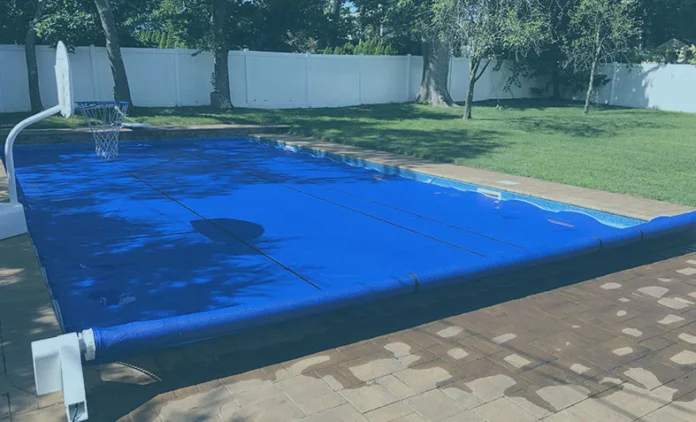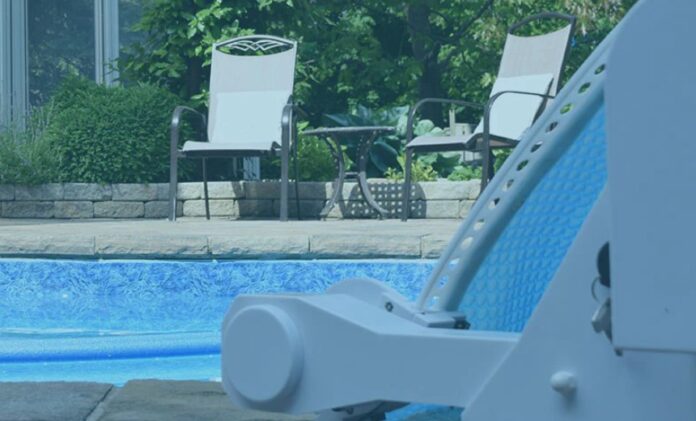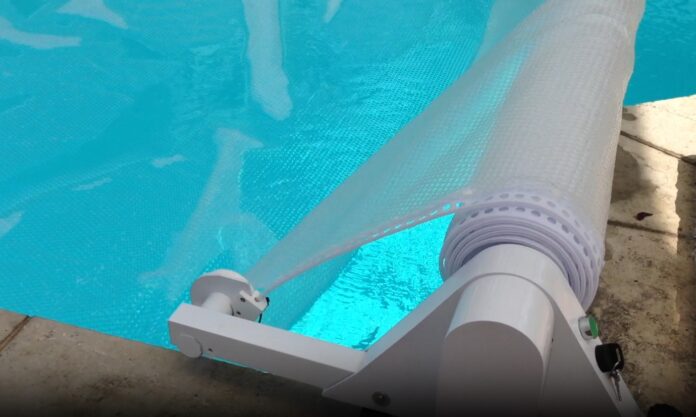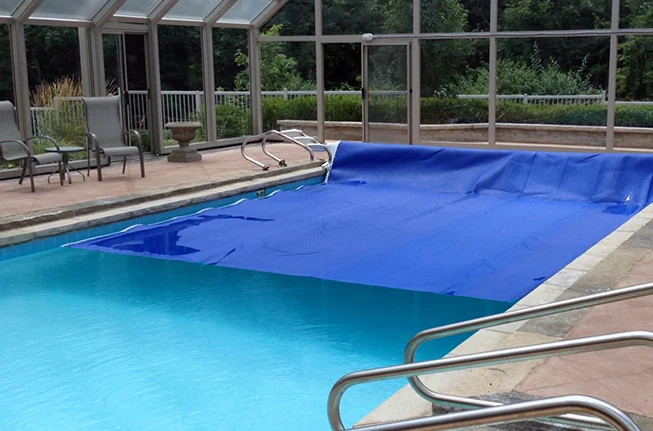
Solar pool covers are a popular choice among pool owners looking to reduce energy costs, maintain water temperature, and minimize evaporation. These covers, often made from plastic materials with bubble wrap-like designs, effectively trap heat and provide insulation. However, like all pool accessories, solar covers have a limited lifespan.
Once they start to wear out, many pool owners wonder: Are solar pool covers recyclable, and what can be done when they reach the end of their usability?
In this article, we will explore the recyclability of solar pool covers, sustainable disposal methods, and eco-friendly alternatives to consider.
Understanding Solar Pool Covers and Their Lifespan

What Are Solar Pool Covers?
Solar pool covers, also known as solar blankets, are designed to float on the surface of the water and trap heat from the sun. They function by:
- Reducing water evaporation, which helps conserve pool water levels.
- Retaining heat, thereby minimizing the need for additional heating.
- Reducing chemical loss due to exposure to air and sunlight.
- Preventing debris from entering the pool, making maintenance easier.
These covers are typically made from plastic materials such as polyethylene, polypropylene, or vinyl. While effective, they do wear out over time due to prolonged exposure to sunlight, chlorine, and other pool chemicals.
How Long Does Solar Pool Covers Last?
On average, a solar pool cover lasts between 3 to 5 years. Factors that affect the longevity of a solar pool cover include:
- Exposure to UV radiation – Constant exposure to the sun can cause the plastic to degrade.
- Chemical exposure – High chlorine levels and other pool chemicals can weaken the material.
- Proper maintenance – Cleaning and storing the cover correctly can extend its lifespan.
- Frequency of use – Covers that are frequently removed and replaced may wear out faster.
Are Solar Pool Covers Recyclable?

The short answer is ─ it depends.
Solar pool covers are primarily made from low-density polyethylene (LDPE) or other plastics, which are theoretically recyclable. However, recycling centers often reject them due to their composition and the contamination from pool chemicals and UV degradation.
Why Are Solar Pool Covers Difficult to Recycle?
- Material composition – Some pool covers are made from mixed plastics, making them challenging to recycle.
- Chemical exposure – The chlorine and other chemicals absorbed into the plastic can make recycling difficult.
- Degradation from UV Exposure – Sunlight weakens the plastic, reducing its recyclability.
- Lack of specialized facilities – Most municipal recycling programs do not accept pool covers because they require specialized processing.
How to Find a Recycling Facility That Accepts Pool Covers
While it may be challenging, some recycling centers do accept solar pool covers under specific conditions. Here’s how to find one:
- Check with local recycling programs – Contact your municipal waste management office and inquire about options.
- Look for plastic recyclers – Some private companies specialize in recycling LDPE and may accept solar covers.
- Ask pool supply retailers – Some stores offer recycling programs for used pool covers.
If recycling is not an option in your area, consider repurposing your old solar pool cover instead of sending it to a landfill.
Eco-Friendly Alternatives ─ What to Do When a Solar Pool Cover Wears Out

Repurposing Your Old Solar Pool Cover
Even if you can’t recycle your old cover, there are several creative ways to repurpose it:
- Ground cover for gardening – Use it as a weed barrier in your garden or under gravel paths.
- Protective tarps – Cut it to size and use it to cover outdoor furniture, firewood, or vehicles.
- Insulation for greenhouses – The heat-retaining properties make it a great material for insulating a greenhouse.
- Camping and outdoor uses – Use old pool covers as tent ground sheets, emergency rain covers, or windbreaks.
- DIY pool cover storage bags – If you’re replacing your cover, use the old one to create a storage bag for the new cover.
- Pet and animal bedding – Cut and layer sections to make bedding for outdoor pet houses or livestock shelters.
Proper Disposal If Recycling and Repurposing Are Not an Option
If recycling and repurposing aren’t feasible, follow these responsible disposal steps:
- Cut the cover into smaller pieces – Breaking it down into smaller sections makes it easier to transport and dispose of properly.
- Check for waste collection days – Some local waste management services offer bulk plastic collection days.
- Contact a specialized disposal service – Some companies handle large plastic items and may take your old pool cover.
Sustainable Pool Cover Alternatives
If you’re looking for a more environmentally friendly replacement, consider these options:
1. Safety Pool Covers
Safety covers made from mesh or solid vinyl offer long-lasting durability and serve multiple purposes, including debris protection and child safety. Some brands use recyclable materials.
2. Liquid Solar Pool Covers
These eco-friendly solutions use a thin, invisible layer of biodegradable liquid that reduces evaporation and retains heat.
3. Automatic Pool Covers
These covers are made from high-durability materials and can last longer than traditional solar covers, reducing replacement frequency and waste.
Tips to Extend the Life of Your Solar Pool Cover

To minimize waste and maximize the lifespan of your next solar pool cover, follow these maintenance tips:
- Rinse regularly – After removing the cover, rinse it with fresh water to remove chemicals and debris.
- Use a reel system – A pool cover reel makes it easier to handle the cover and prevents excessive folding and creasing.
- Store properly – Keep it in a shaded or covered area when not in use to protect it from UV exposure.
- Avoid dragging on rough surfaces – Lifting rather than dragging prevents unnecessary wear and tear.
- Monitor chemical levels – Keeping pool chemicals balanced reduces material degradation.
Conclusion
While solar pool covers provide excellent benefits for pool owners, their disposal at the end of their lifespan poses environmental challenges. Unfortunately, recycling them is not always a viable option due to material composition and contamination. However, repurposing them for various household and outdoor uses can help reduce waste.





